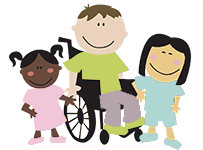How Early Intervention in Autism Improves Language, IQ, and Social Skills
[vc_row][vc_column][vc_column_text] Children with autism face numerous challenges. Common challenges include language development, IQ, and proper social skills. Studies have found that early intervention, which can start as early as 18 months, can help your child to improve in all of these areas.
Children with autism face numerous challenges. Common challenges include language development, IQ, and proper social skills. Studies have found that early intervention, which can start as early as 18 months, can help your child to improve in all of these areas.
What Early Intervention Is
Early intervention refers to the treatments and therapies that are provided to children as soon as possible after an autism diagnosis. The goal is to help your child in the early stages of development. The sooner early intervention is provided, the better.
Young Children Have Fewer Habits
Young children do not have as many established habits as older children do. With fewer habits, it can be easier to put a stop to any negative behaviors before they develop into a more serious, and harder to reverse, issue.
Plans are Designed for the Child
There’s no one plan that will work for every child. Each child is unique, and what will help them to succeed should be planned carefully just for them. Children with autism have different needs than children who just have behavioral issues. Your child’s early intervention plan is designed with their autism in mind. Their plan focuses on developing a variety of different skills, including language, listening, communication, and attention.
Structured Environments
Early intervention provides your child with a well-structured environment. A structured environment can help your child to feel more comfortable, which can help them to learn more effectively. Your child’s progress is monitored carefully, and adjustments are made as necessary. While structured, early intervention plans are also made to ensure that your child is still having fun while they learn. All plans are backed by research by highly trained and experienced professionals.
Providing Support for Children and Families
When your child isn’t on track for normal development, you may develop a sense of helplessness. You might become upset or frustrated. All of these feelings can further impact the development of your child. It can also lead to significant stress in the household and affect all members of the family. Early intervention isn’t just for your child. It’s beneficial for the whole family. Not only can early intervention help by providing you with a supportive, caring environment (which can greatly reduce stress and frustration), you can learn strategies to help your child develop their language, IQ, and social skills even further at home.
The sooner your child receives early intervention, the greater their chances for improved language, IQ and social skills. If you live in North Texas, call Speech and OT for more information today![/vc_column_text][/vc_column][/vc_row]
